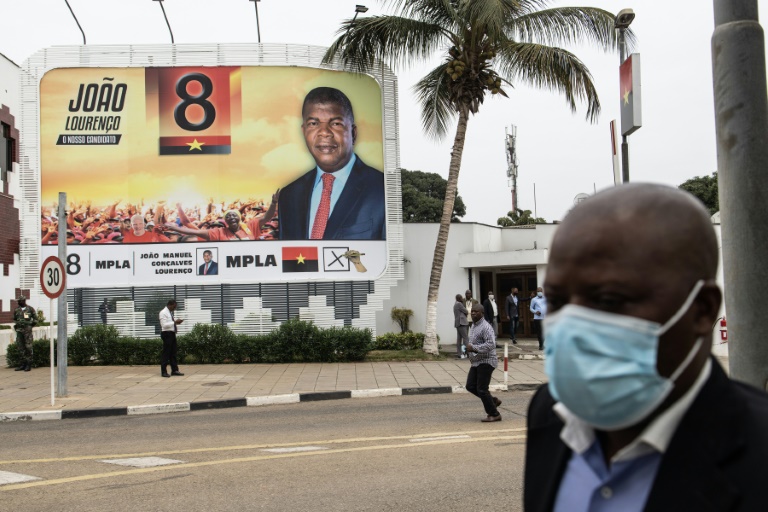Angola’s opposition rejects initial poll results

Final results are not out yet, but Joao Lourenco looks set to remain Angola’s president
Luanda – Angola’s opposition leader Friday rejected preliminary election results that suggest President Joao Lourenco will stay in power despite the country’s most competitive polls since independence.
The People’s Movement for the Liberation of Angola (MPLA), which has ruled the oil-rich nation for nearly five decades, has claimed a “comfortable majority” in this week’s vote.
Final results have still not been announced.
But after 97 percent of the results were tallied, an initial count late Thursday showed the MPLA had won 51.07 percent of the votes.
It gave its main rival, the National Union for the Total Independence of Angola (UNITA), 44.05 percent in the Wednesday polls.
UNITA leader Adalberto Costa Junior late Friday said his party “does not recognise the provisional results”.
He said the opposition party had conducted its own vote tallying and had noted discrepancies.
Costa Junior called for an international panel to review the count.
“We can affirm with complete assurance that the MPLA did not win the elections,” he told a cheering crowd of supporters.
– ‘Political turbulence’ –
The MPLA has traditionally wielded control over the electoral process and state media, and opposition and civic groups have in recent days raised fears of voter tampering.
The Southern African Development Community (SADC) and the African Union (AU) raised concerns ranging from a shortfall of national observers to questions about the electoral roll and biased reporting by state-owned television.
The SADC said voting was “peaceful, calm and well organised”, but some polling stations opened and closed at irregular hours.
It urged anybody with objections to the results “to channel their concerns through established legal procedures”.
The AU, meanwhile, noted “some limitation on the right to access information and the freedom of press”.
The MPLA, a former liberation movement, has ruled Angola since the country gained independence from Portugal in 1975.
But it has seen a steady decline in support in recent elections.
While it romped to victory with 71.84 percent of votes in 2012, it only garnered 61 percent five years after that.
UNITA scored 26.67 percent in the 2017 elections, contesting the official count then too.
Alex Vines, of the UK-based think tank Chatham House, earlier predicted Costa Junior’s party would object.
“We can expect… some months of political turbulence,” he said.
– ‘End corruption’ –
Augusto Santana, of the non-profit Democracy Works Foundation, said protests could break out over the weekend.
“UNITA is not happy because they think they have won the elections,” he said.
The latest election has been overshadowed by a struggling economy, inflation, poverty, drought and the death in Spain last month of Lourenco’s predecessor, Jose Eduardo dos Santos.
The opposition has proved popular in urban areas, winning in the capital Luanda and among youth disaffected with the ruling party.
“The people have voted en masse for UNITA, and to end the vicious circle of corruption that plagues the country,” said Gilson Leopoldo, a 26-year-old accountant in Luanda.
Angola is Africa’s second largest crude producer, but the oil bonanza has also nurtured corruption and nepotism.
Santana said the opposition was unlikely to manage to overturn the results.
But it could still usher in a “new era of politics”, with more UNITA lawmakers making it into parliament.
Marisa Lourenco, a Johannesburg-based independent analyst, said times were changing.
“This is the last election the MPLA will win outright,” she said.
